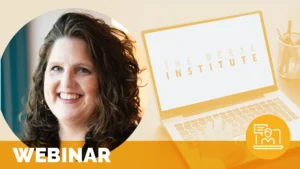Volunteer Satisfaction Survey

Frank Hrabe, Volunteer Database & Compliance Coordinator, Children’s of Alabama – Birmingham, AL
In this webinar, participants will discover the steps necessary to conduct a volunteer satisfaction survey, interpret results for evaluation of volunteer surveys and benefit from the lessons learned (pitfalls & success) of surveying.
*This resource was originally developed by the Association for Health Care Volunteer Resource Professionals (AHVRP) prior to AHVRP integrating with The Beryl Institute in July 2020. This webinar does not offer Patient Experience Continuing Education Credit (PXE).
Related content
-
 Policy & Measurement | Staff & Provider Engagement
Policy & Measurement | Staff & Provider EngagementLeveraging Metrics to Demonstrate Volunteer Impact
Metrics are essential for volunteer leaders to demonstrate program value, though selecting and using the right data can be challenging. This session will equip leaders with the knowledge to collect and use metrics that showcase the impact of volunteer programs. Attendees will learn why metrics matter, what data to track, collection methods (from low-tech to
Learn more -
 Innovation & Technology | Policy & Measurement
Innovation & Technology | Policy & MeasurementUsing Narrative to Illuminate and Improve Experience
Watch this webinar for an interactive discussion through a series of five mini-case studies to illustrate the power of narrative. The case studies will focus on: (1) using an innovative digital tool to collect patient-generated contextual information and embedding at-a-glance summaries of patient narratives in the EHR (2) mining open-ended comments in experience surveys, with
Learn more -
 Policy & Measurement
Policy & MeasurementAssociation Between Clinicians’ Average Patient Length of Stay and Patient Experience Scores
Objective: Given the current emphasis on patient-centered care, emergency physicians are seeking ways to improve patients’ experience in the emergency department (ED). Length of stay (LOS) in the ED has previously been associated with patient experience ratings, however there is limited literature on this relationship at the clinician level. The objective of this study was
Learn more
